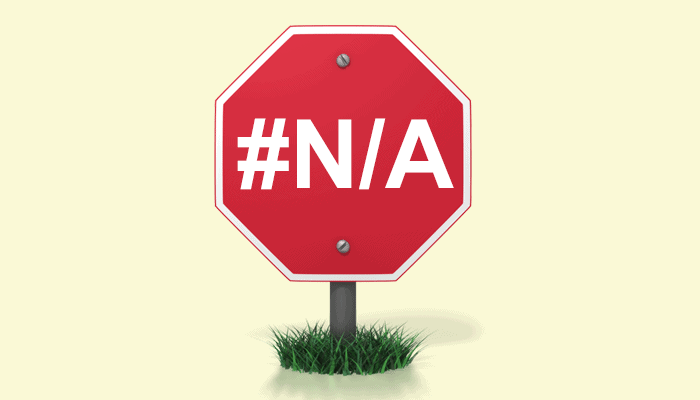How to Become a Librarian in 2025
As the role of librarians evolves in response to technological advancements and changing community needs, aspiring librarians must be well-prepared to navigate the path toward a fulfilling career in libraries. This comprehensive guide outlines the important steps and qualifications needed to embark on a successful journey toward becoming a librarian in 2025.
Librarian Education Requirements
To start your journey, understanding the **librarian education requirements** is paramount. Typically, aspiring librarians are required to obtain a Master’s in Library Science (MLS) or a Master of Library and Information Science (MLIS). Accredited programs often cover essential branches of librarianship such as **library cataloging techniques**, **library management**, and the use of archival materials. Many programs also offer practical experience through internships, which can be a pivotal step in transitioning to a professional role.
Master's Degree in Library Science
A Master’s degree in Library Science is an essential step to achieve professional status. This degree provides foundational knowledge on **information organization**, cataloging, and reference services. In 2025, many programs are embracing technology and innovation within their curriculum, ensuring that graduates are equipped with skills in digital literacy and library technology integration. Participating in an accredited program opens avenues for *librarian certification* upon completion, making candidates more attractive in the job market.
Alternative Educational Paths
While an MLS/MLIS is the traditional pathway, some individuals may opt for specialized courses in **library technology** or community outreach programs. Community colleges or online platforms may also offer diplomas or certificates that cater to specific library settings, such as **public vs. academic librarians**. Aspiring school librarians may benefit from tailored coursework to address the unique educational environments they’ll be in.
Steps to Become a Librarian
With a firm educational foundation, the next phase involves following specific **steps to become a librarian**. This journey encompasses gaining practical experience and developing a professional network within the field.
Gaining Experience through Internships
Participating in a **librarian internship** can be a game-changer. Internships not only provide insight into *library operations*, but they also offer hands-on experience with **library management systems** and **cataloging systems**. Moreover, internships facilitate networking opportunities with professionals who can provide mentorship and guidance in your career pursuits.
Building Professional Networks
Networking is a vital aspect of career advancement in libraries. Engaging with **professional associations for librarians** offers a chance to connect with others in the field, access job opportunities and continuing education resources. Associations such as the American Library Association (ALA) provide resources such as workshops and conferences that enhance professional growth and knowledge regarding emerging **library trends and innovations**.
Essential Skills Needed for Librarianship
Beyond formal education, certain **skills needed for librarianship** can significantly enhance one’s effectiveness as a librarian. These skills, both technical and interpersonal, are crucial for success in a library setting.
Organizational and Research Skills
Organizational skills play a key role in managing library resources and optimizing user experiences. Programs on **effective information retrieval** or **library-based research methods** empower librarians to assist effectively with patron inquiries. In addition, conducting workshops on **information literacy education** can significantly elevate a library’s role in the community, encouraging a culture of learning and inquiry.
Communication and Soft Skills
With **soft skills for librarians** becoming essential, strong communication abilities are necessary for interacting with library users and stakeholders. The capacity to assist diverse community members and cater to varying literacy levels often differentiates successful librarians. Training on **library patron services**, including customer engagement tactics, can enhance these vital communication skills.
Job Market Outlook for Librarians
The **librarian job market** is continually evolving, shaped by broader societal changes and technological development. Knowing what to expect in terms of job opportunities can greatly influence your career planning.
Exploring Job Opportunities in Various Settings
Diverse potential job opportunities exist across various types of libraries, including public, academic, school, and special collections. Each setting requires slight variations in skills and responsibilities. The ability to understand **library systems management** and comply with **library policies and procedures** will enhance your job prospects significantly, regardless of the setting.
Navigating the Job Search Process
Understanding how to effectively search for librarian jobs is crucial. Crafting an impactful resume tailored for librarianship can set you apart from other candidates. Consult the resume-building resources available through **professional associations for librarians** for insider tips on tailoring yours. Research common **job interview tips for librarians** to prepare for what hiring managers are looking for—having a well-rounded understanding of both the tech aspect and community engagement is highly advantageous.
Future of Libraries and Technological Integration
As libraries continue to adapt to the digital age, understanding how **technology in libraries** integrates with traditional librarian roles is fundamental for aspiring professionals. Falling behind in technological trends can hinder a librarian's effectiveness and future job prospects.
Librarians and Technology Trends
In 2025, being digitally fluent is not optional; instead, it’s integral for success in a librarian career. The rise of digital assets and **library management systems** indicates that those knowledgeable in technology will excel in literacy positions. Embracing concepts such as **digital library management** and **metadata management in libraries** enhances resource accessibility, benefiting library patrons immensely.
Professional Development and Continuing Education
Continuous improvement through **professional development for librarians** is critical to stay updated with changing trends. Participating in ongoing education units through workshops or webinars can be invaluable. Many organizations offer **continuing education for librarians**, providing essential tools to navigate collections like academic publishing for librarians and archiving challenges.
Key Takeaways
- Acquire the appropriate **librarian education requirements**, typically an MLS/MLIS degree, complemented by internships.
- Develop well-rounded **library management skills** and cognitive abilities in information organization and outreach.
- Stay tech-savvy and embrace innovations in library systems and digital management.
- Engage with **community service in libraries** to hone outreach programs and improve user engagement.
- Look into **career advancement for librarians** through sustained professional development and networking.
FAQ
1. What qualifications do I need to become a librarian?
To become a librarian, obtaining a Master's in Library Science (MLS) or a similar qualification is typically necessary, along with completing internships for practical experience. Additionally, certifications can enhance your employability, offering knowledge in **library management** and countless areas related to **librarian job responsibilities**.
2. How do I find a librarian job?
Finding a librarian job involves tapping into various resources, including job boards, professional network events, and librarian associations for listings. Creating a tailored resume and practicing **job interview tips for librarians** can significantly improve your chances of landing a role in a competitive job market.
3. What are the different types of librarian roles?
Various librarian roles include **public librarians**, who serve community members, **academic librarians** focusing on educational institutions, and **school librarians** who cater to students' needs. Each role has distinctive responsibilities and requires specialized knowledge in their respective areas.
4. Are internships valuable in librarianship?
Yes, internships provide invaluable hands-on experience and are essential for bridging the gap between academic learning and professional practice. Moreover, they offer networking opportunities that can lead to future job placements tailored to your career ambitions.
5. How does technology impact the role of librarians?
Technology greatly influences librarianship, as librarians are required to manage digital resources, utilize advanced **library software**, and ensure access to information through innovative means. Embracing technology trends is essential for remaining relevant and effective in this evolving field.
6. What are key soft skills for successful librarians?
Successful librarians rely heavily on *soft skills*, including effective communication, empathy, and organizational abilities. These skills enhance their capability to connect with library users, demonstrate leadership, and maintain well-structured library services.
7. How do I continue my education as a librarian?
Continuing education for librarians can take many forms—participation in Webinars, workshops, online courses, and academic programs are just a few examples. Additionally, engage with professional associations that offer resources for *librarian professional growth* and development opportunities in emerging areas like **library technology integration**.


